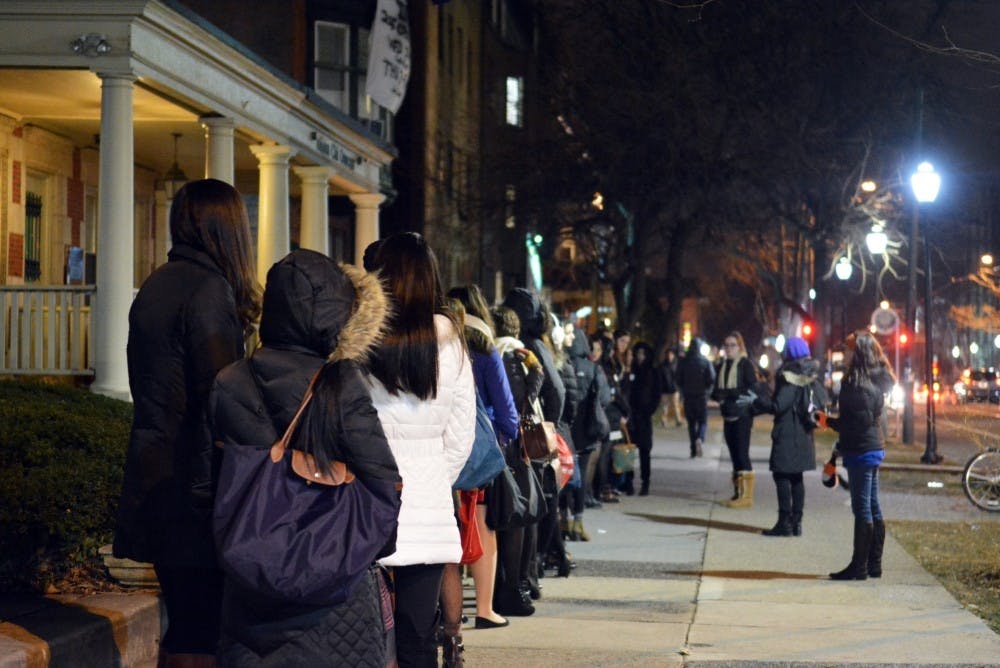The Greek Community Judiciary Board will undergo changes to its proposed structure after backlash from administrators, according to an op-ed it wrote on Sept. 11 in The Daily Pennsylvanian.
In the op-ed, College juniors Ray Clark, president of UMOJA, and Griffin Rubin, Interfraternity Council judicial manager, outlined their ideas for the creation of an external body composed of members of the Panhellenic Council, the Interfraternity Council and the Multicultural Greek Council. Members of this body would adjudicate on issues of insensitivity in Greek life.
The board, as outlined in the op-ed, would serve as an outlet where Penn students could voice their complaints regarding cultural insensitivity on campus. If the board found a Greek organization guilty of cultural insensitivity, it would impose sanctions, usually in the form of education, the op-ed stated.
Administrators, however, said they did not approve of the plan detailed in the op-ed.
“To be clear, I think there [are] some overstatements in the op-ed,” Office of Fraternity and Sorority Life Director Eddie Banks-Crosson said in an interview last week. “There have been conversations with administrators, not to the depth I think that the article suggests.”
Clark and Rubin are currently restructuring their original plan with assistance from the University. They say, however, that they were in close communication with OFSL and the Office of the Vice Provost for Undergraduate Life leading up to the op-ed.
A major issue with the original board is that administrators believed it could violate Penn’s free speech policies.
“While the students may have tried to manage their pain by wanting to sanction speech, the administration has conveyed that Penn does not and will not sanction speech,” Banks-Crosson wrote in an email on Tuesday. Director of the Office of Student Conduct Julie Lyzinski Nettleton said she also did not approve of the board’s proposed powers as outlined in the op-ed.
Rubin and Clark believe that restructuring the board to be more within University policies is ultimately positive.
“I am an absolutist when it comes to free speech,” Rubin said. “This is a good thing; we’re making it not only more educational, but more realistic.”
“I want to keep people’s freedom of expression intact while also keeping Penn a safe space,” Clark added.
Although OFSL acknowledges having open dialogue with Rubin and Clark about how the Greek Community Judicial Board could operate, it maintains that the board is a student-led initiative.
“We have been working to get this organization ... to a point where it is functional and it makes sense,” Banks-Crosson said.
According to OFSL, the proposed board has also not been approved by all councils in the Greek community. Women’s Greek organizations, for example, do not allow men to participate in their legislative dialogue.
“So when we talk about levying and sanctions, that can be difficult for this external body,” Banks-Crosson said.
An opt-in system, which has proposed as an addition to the board, could serve as a possible solution. Under this system, accused organizations would have to agree to participate in proceedings and accept any possible punishments.
“We would expect them to want to opt-in,” Rubin said. “If for what ever reason it was my fraternity, I would certainly expect it.”
Despite the changes, Rubin and Clark remain proud of how the board is turning out.
“Ultimately, at the end of the day, the way it’s shaping up, I’m still gonna be very happy with it,” Rubin said.
“I think in the future these incidents will be handled properly with the board because I think that what we’re lacking is a structure and a place where people’s voices can be heard,” Clark said.









